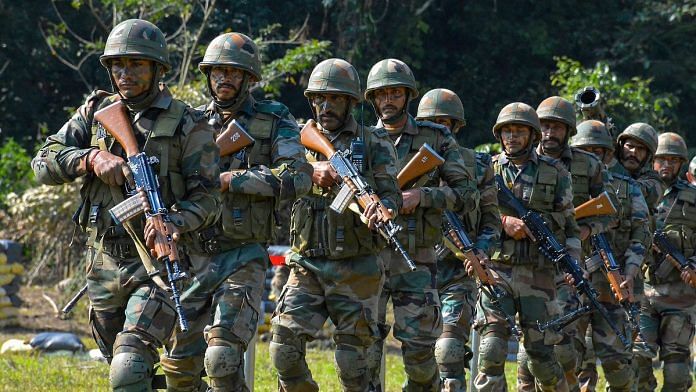Army Chief General Bipin Rawat has ruled out inclusion of gay soldiers in military, saying Indian Army is not “westernised”, and was “conservative” .
New Delhi: Indian Army Chief General Bipin Rawat created a controversy Thursday when he said homosexuality will continue to be considered an offence in the armed forces.
This flies in the face of last year’s historic Supreme Court judgment that struck down a part of the controversial Section 377 and decriminalised consensual sex between homosexuals.
Addressing the army’s annual press conference, Rawat said that while the Army Act, which governs the force, was not above the law of the land, the Indian Army was not “westernised and modernised”, and was “conservative” when it came to matters like adultery or homosexuality.
He declared that gay sex offenders would be dealt with under relevant sections of the Army Act.
Supreme Court ruling on LGBT
In a landmark judgment delivered in September 2018, the Supreme Court ruled that homosexuality was no longer a crime in India.
The apex court overruled its own 2013 verdict and partially struck down Section 377, the British-era law that banned sex between consenting adults of the same gender.
Military rules that could apply to gay sex
Laws governing the three arms of the Indian military bar homosexuality — although through euphemisms and not explicitly — and rule it a punishable offence.
Section 45 the Army Act, 1950, talks about the “unbecoming conduct” of officers without detailing it.
Section 46 (a) says any person guilty of any disgraceful conduct of a “cruel, indecent or unnatural kind” will, on conviction by court-martial, face up to seven years in jail.
Also read: Army chief rules out gay sex, adultery in Indian Army
Do Rawat’s comments contravene Supreme Court verdict?
In principle, his remarks are contrary to the SC judgment.
Justifying them, he said that while joining the Indian Army, individuals had to forgo some of the rights and privileges enjoyed by civilians under the Constitution.
Military law expert Major Navdeep Singh, an advocate in the Punjab and Haryana High Court, told ThePrint that while Section 377 can no longer be invoked for consenting adults, in the military or in any civil setup, “any kind of homosexual or heterosexual behaviour that falls under the category of ‘unbecoming conduct’, is ‘indecent or cruel’, or in ‘violation of good order and discipline (if it impacts military life)’, can still be punished”.
“Perhaps that’s what the Army chief meant,” he added.
According to Army sources, the military acts would need to be amended before openly homosexual personnel were allowed in the three forces.
Do armies in other countries allow gay personnel?
Countries such as the US, the UK and the Philippines accept openly gay soldiers. However, it took the US decades to strike down their controversial, “don’t ask don’t tell” policy, with the decision finally coming in 2011.
Australia, Israel, Canada, Netherlands, New Zealand, Sweden, and Germany are other countries that allow gay soldiers in military service.
A study conducted by the thinktank Hague Centre for Strategic Studies on more than 100 armed forces found India’s to be among the least friendly to gays.



